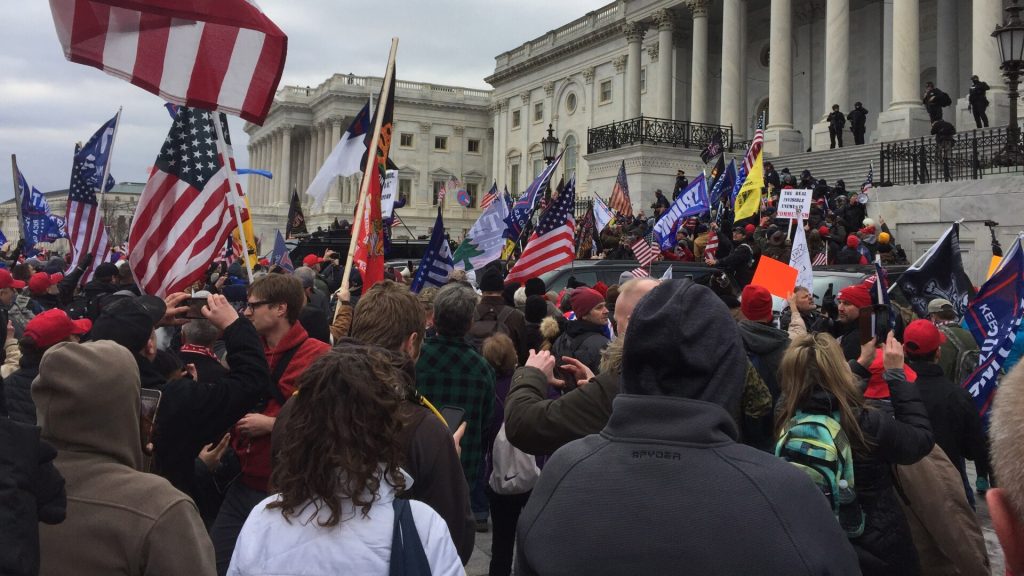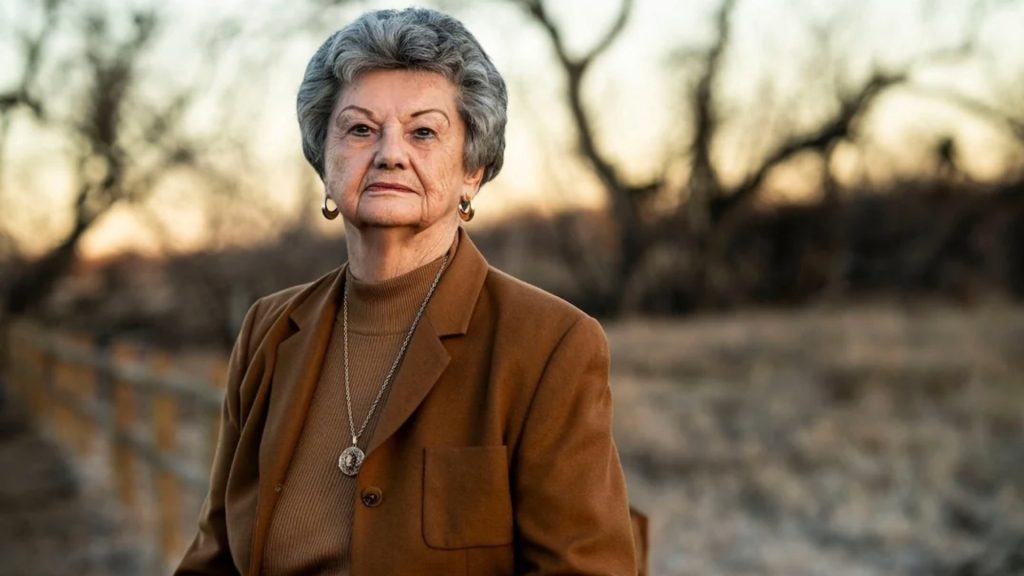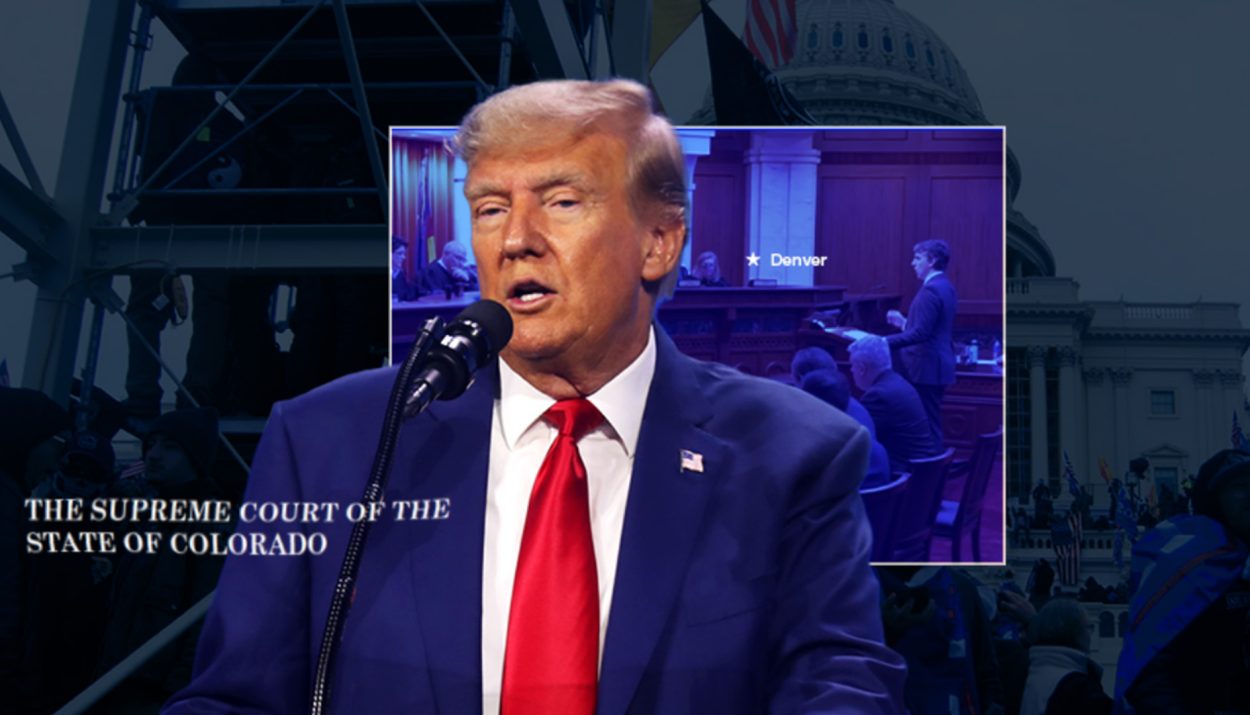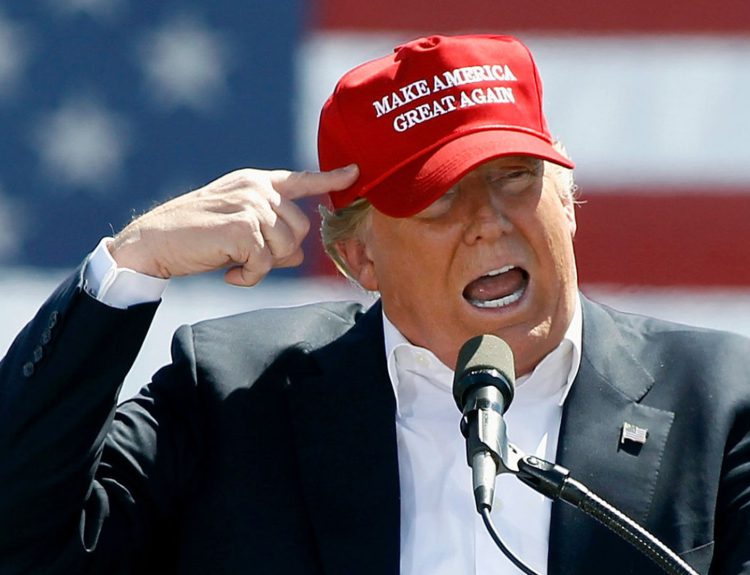As a 91-year-old Republican, you likely would not expect Norma Anderson to be the face of the legal challenge aiming to bar former President Donald Trump from running in 2024. However, Anderson’s decades of experience in Colorado politics have shaped her into an unlikely adversary against the former President.
Citing concerns over Trump’s efforts to overturn the 2020 election results and his role in the January 6th attack on the Capitol, Anderson now stands alongside five other voters in a pivotal Supreme Court case. The 14th Amendment provision they lean on has sat mostly dormant for over a century up until now.
Meet Norma Anderson, the Unlikely Face Challenging Trump’s Candidacy
Norma Anderson is not who most would expect to be leading the charge against Donald Trump’s 2024 presidential campaign. However, at 91 years old, the former Colorado state legislator has joined with five other plaintiffs to file a lawsuit citing the 14th Amendment to bar the former President from appearing on her state’s primary ballot.

Anderson served in Colorado’s state legislature for decades, becoming the first woman to lead both chambers. Though a lifelong Republican, she has expressed skepticism about Trump’s actions surrounding the January 6th insurrection at the U.S. Capitol.
Lawsuit Backed Up By Citizens for Responsibility and Ethics in Washington
The lawsuit, filed with the help of Citizens for Responsibility and Ethics in Washington (CREW), a nonprofit government watchdog group, argues that Trump’s rhetoric and actions leading up to and during the Capitol attack amount to insurrection.

Trump’s campaign has appealed to the U.S. Supreme Court, which will hear arguments in the case on Thursday. Though considered unlikely, a ruling in Anderson’s favor would prevent Trump from running in Colorado and set a precedent restricting his candidacy in other states.
The 14th Amendment and Its Relevance to Trump’s Campaign
The case against former President Donald Trump by Norma Anderson and five other plaintiffs hinges on Section 3 of the 14th Amendment to the U.S. Constitution. Ratified in 1868, the 14th Amendment was passed to grant rights to formerly enslaved peoples and prevent insurrectionists from holding public office after the Civil War.

Section 3, also known as the “Disqualification Clause,” states that “No person shall be a Senator or Representative in Congress, or elector of President and Vice President, or hold any office, civil or military, under the United States, or under any state, who, having previously taken an oath, as a member of Congress, or as an officer of the United States, or as a member of any state legislature, or as an executive or judicial officer of any state, to support the Constitution of the United States, shall have engaged in insurrection or rebellion against the same, or given aid or comfort to the enemies thereof.”
The Key Argument point
The plaintiffs argue that then-President Trump engaged in insurrection against the United States by inciting the January 6 attack on the U.S. Capitol in an attempt to overturn the results of the 2020 presidential election.

Trump and his legal team counter that Section 3 does not apply because the former President did not personally engage in violence or enter the Capitol building on January 6.
Anderson’s Journey From Colorado Politician to Lead Plaintiff
Norma Anderson spent decades serving the people of Colorado as an elected official but never imagined she would become the face of a legal challenge against a former president. Her steadfast commitment to the Constitution and belief in civic responsibility led her to join a lawsuit citing the 14th Amendment to bar Donald Trump from running for President again.

Anderson was the first female majority leader in both chambers of the Colorado legislature, serving from 1972 to 2006. A lifelong Republican, she grew increasingly wary of Trump’s rhetoric and actions. His attempts to overturn the results of the 2020 election crossed a line for Anderson.
CREW’s Pivotal Role in Reviving Section 3 Post-Jan. 6
CREW’s efforts have brought renewed attention to Section 3, which had remained dormant for over a century. The provision states that no person shall hold office who, having previously taken an oath to support the Constitution of the United States, shall have engaged in insurrection or rebellion against the same.

CREW contends that Trump’s speech at the “Stop the Steal” rally shortly before the Capitol attack, in which he urged supporters to “fight like hell” and march to the Capitol, qualifies as inciting insurrection against the government he had sworn to protect.
How the Supreme Court’s Ruling Could Shake Up 2024
The Supreme Court’s decision in Trump v. Anderson could have major implications for the 2024 presidential election. Should the justices rule in favor of Norma Anderson and the other plaintiffs, Donald Trump would be barred from appearing on primary ballots nationwide, effectively ending his campaign before it begins in earnest.

A ruling against Trump would roil an already polarized electorate even if considered a long shot legally. His supporters would decry the decision as an unfair attempt to manipulate the election, while his detractors would praise the court for enforcing consequences against the former President for his role in the January 6 insurrection.
Conservatives Believe Trump Was on The Wrong
While the case is built on a constitutional argument, it has fractured political alliances. Some prominent conservatives believe Trump’s actions warrant disqualification, even as some liberals argue defeating him at the ballot box is the healthier approach for democracy.

The plaintiffs include not just Norma Anderson but also other lifelong Republicans who see Trump as a threat to the party and the country. A Trump campaign spokesman dismissed them as “Republicans in name only” and predicted the court would allow Trump to proceed with his campaign.
It is a Long Shot
The Supreme Court will review Anderson v. Trump and likely set a precedent for the whole country. Although a long shot, if the justices agree Trump engaged in insurrection, it would shock politics by booting the GOP frontrunner from the race. The ruling may please some but anger others in our polarized nation.

Anderson knew she might face backlash but “doesn’t frighten easily.” Columnist Krista Kafer, another plaintiff, studied the case, prayed on it, and asked her mom before joining. She said Democrats should do the same if their leader acted like Trump. And if he runs again, future losers may provoke violence.
No Stranger To Challenging The Status Quo
As the first woman to serve as majority leader in both legislative chambers in Colorado, Anderson is no stranger to challenging the status quo. Now, in the twilight of her storied career, she wages one final battle to bar Trump from running again.

The Supreme Court’s impending decision will resonate far beyond this case, shaping the 2024 presidential race and the fundamental principles on which this nation was founded. For a 91-year-old unsung hero now stepping into the national spotlight, the fight for justice still burns bright.






